Introduction
An allergy is a disorder in which the body becomes hypersensitive to particular antigens which provoke characteristic symptoms whenever they are subsequently inhaled, ingested, injected, or otherwise contacted. Normally antibodies in the bloodstream and tissues react with and destroy specific antigens without further trouble. In an allergic person, however, the allergens provoke the release of a class of antibodies that become bound to certain substance in the body’s tissues. The subsequent reaction of allergen with tissue-bound antibody also leads, as a side effect, to cell damage, release of chemical mediators, inflammation and all the symptoms of the particular allergy. Different allergies afflict different tissues and may have either local or general effects, varying from asthma and hay fever to severe dermatitis or gastroenteritis or extremely serious shock.
Some allergic reactions are mild, while others can be severe and life-threatening. Allergic reactions often occur more frequently in people with a family history of allergies. Substances that don’t bother some people (including certain medications) can trigger allergic reactions in others.
Causes
Allergic reactions that occur in the dental office may be caused by materials or medications. These allergens may include:
- Latex
Latex can be found in many medical or dental supplies and devices, such as masks, gloves, syringes, rubber dam and some wedges, polishing cups, orthodontic elastics, endodontic stops etc. Unlike some consumer goods made from synthetic latex, natural rubber latex is derived from a milky substance found in rubber trees. Some individuals have developed hypersensitivity to proteins derived from natural rubber latex, which can cause allergic reactions. If you are allergic to latex, ask your dentist if he or she has latex-safe products available for use during a dental procedure or surgery.
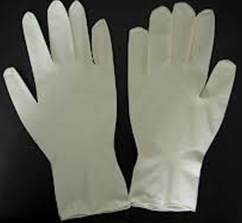
- Local anesthetic
Local anesthetics are used to numb your mouth and gums when you undergo certain dental treatments. Although allergic reactions to local anesthetics are rare, they can occur. If you have had reactions to local anesthesia in the past, be sure to tell your dentist before you undergo any treatment. Your dentist can find alternative ways to anesthetize you to prevent any adverse reactions. True allergy is unlikely there if no skin rash or tissue oedema. It is more common for symptoms to be due to inadvertent intravascular injection producing transient tachycardia or from patient anxiety. It is more common precipitating a faint.
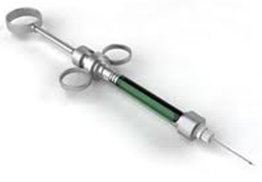
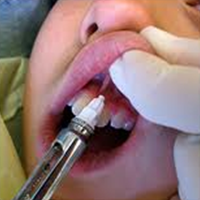
- Medications
- Antibiotics
Penicillin and related antibiotics can cause an allergic reaction in some people. Not all adverse reactions to penicillin are a sign of an allergic reaction. True allergic reactions involve the immune system and can cause signs and symptoms that range from an annoying rash to a life-threatening reaction (anaphylaxis) with low blood pressure and trouble breathing.Signs and symptoms of a penicillin allergy include: hives, rash, itchy skin, wheezing, swollen lips, tongue or face. Tell your dentist if you notice any of the signs or symptoms of penicillin allergy. He or she can determine if you’re having an allergic reaction and may prescribe an alternate antibiotic. Talk to your dentist if you think you’re allergic to penicillin or if you experience any signs or symptoms of penicillin allergy. If possible, see your dentist when the allergic reaction is occurring. This will aid in making a diagnosis. Seek emergency medical treatment if you develop any signs or symptoms of anaphylaxis.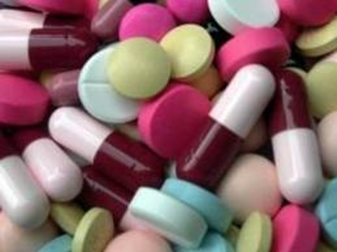
- Pain killers
There are also patients who are allergic to pain killers such as Non-steroidal anti-inflammatory drugs, (NSAIDs).They are are drugs with analgesic, antipyretic (lowering an elevated body temperature and relieving pain without impairing consciousness) and, in higher doses, with anti-inflammatory effects (reducing inflammation). In patients with asthma, some may have their asthma symptoms worsened by NSAIDS. If a person with asthma also has chronic sinusitis/nasal polyps, the chance of NSAID allergy increases. Many different reactions have been reported, from mildly bothersome to life threatening. The most common reactions include: skin symptoms, such as hives and swelling, respiratory symptoms, such as rhinitis and asthma symptoms and anaphylaxis. Avoidance of all of the NSAIDs is the usual treatment for NSAID allergy. It is important to be aware of the huge variety of medications that contain aspirin or related NSAIDs. - Toothpaste
Many people may not be aware that they have a toothpaste allergy because they are not very common they can be hard to diagnose. Toothpaste contains such a wide variety of ingredients which also presents a problem trying to figure out just which one is posing the problem. Even herbal toothpaste can pose a risk because they contain herbs that many have not been exposed to. Toothpaste allergy symptoms can be mild to severe and in rare cases lead to anaphylactic shock and death.One of the symptoms is contact dermatitis. It appears as a red itchy flaky rash around lips and chin. They generally start in the corners of the mouth and if untreated spread downward and sometimes goes around the lower lip. in some situations the gums will become inflamed or will be very sore soon after brushing.If you think you are suffering from toothpaste allergy symptoms you may want to try switching toothpaste or try using a toothpaste that has the fewest ingredients. You could also consider reducing the amount of toothpaste you use in the morning and rinse well with water right after brushing so that smaller amounts are ingested. It is also important to wash those areas of your face where toothpaste maybe left after brushing. See your dentist to get treatment for any toothpaste allergy symptoms while you try and figure out what ingredient is causing your problem.
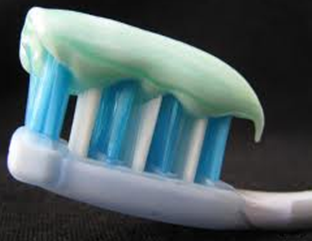
- Mouthwash
Allergies to mouthwash can also happen. These can be due to the contents of the mouthwash (alcohol, chemicals or flavourings). Inform your dentist if you notice any symptoms. There is a wide range of mouthwashes that you can opt for.

- Antibiotics
- MaterialsFilling materials /dentures
- Amalgam
Amalgam is commonly used for fillings. It contains a mixture of mercury with at least one other metal. Amalgam allergy is a very rare condition in which a patient reacts to the small amounts of mercury contained in amalgam dental fillings. An amalgam allergy occurs when the immune system becomes sensitized to a component in amalgam and then mistakes the substance as a foreign invader. The immune system then attacks the substance, producing symptoms of an allergic reaction (e.g., skin rash, itching). The substance in amalgam that is a potential trigger for this allergic reaction (allergen) is liquid mercury. Individuals with this condition must have other dental restorative materials (e.g., resin, porcelain, gold) used on them. Patients who suffer amalgam allergies typically have a personal history or family history of allergies to metals.
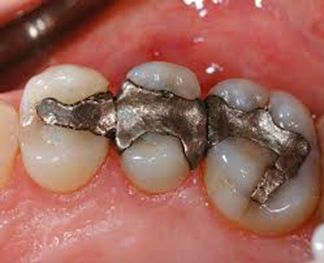
Amalgam fillings - Acrylic resin/Cobalt chromium
Acrylic resin dentures contain methylmethacrylate (MMA) as residual monomer. MMA has the potential to elicit irritation, inflammation and allergic response of the oral mucosa. Patients may complain of ‘burning mouth’ sensation. The allergic reaction may occur within a few to several hours after the mucosa is exposed to the resin. If it is a proven allergy consider the use of a cobalt chrome or stainless steel denture base. Some patients may also be allergic to nickel, a constituent of cobalt chrome dentures. These patients may give a history of allergy to jewellery or watch castings.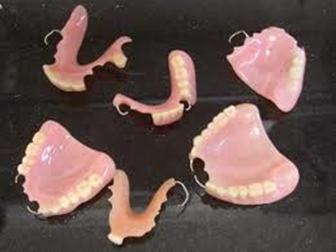
Acrylic partial denture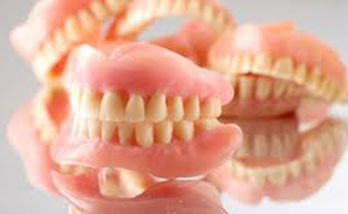
Acrylic full denture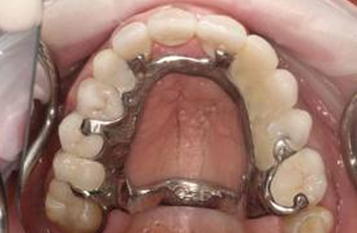
Chrome Cobalt Denture
- Amalgam
Signs/Symptoms
A person who is allergic can experience a range of symptoms, including itchy, swollen eyes; a runny nose; and sneezing. Hives, dermatitis (skin rash), and asthma also are common reactions. The most severe allergic reaction is the potentially fatal condition known as anaphylactic shock, which is characterized by the following symptoms: generalized flushing of the skin; hives; mouth and throat swelling; difficulty in swallowing or speaking; changes in heart rate; abdominal pain; nausea and vomiting; anxiety; a sudden feeling of weakness (due to a drop in blood pressure); and unconsciousness.
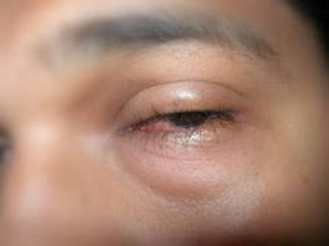 Swollen eye
Swollen eye
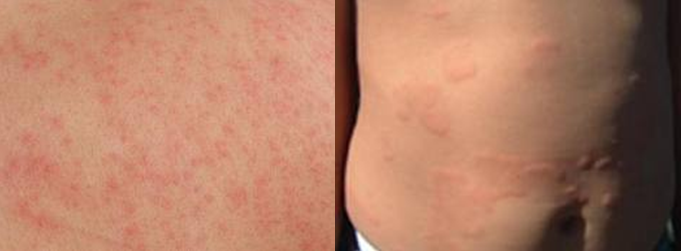 |
|
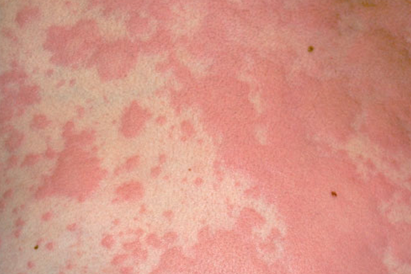 Rashes |
Complications
The most severe type of allergic reaction is anaphylactic shock (i.e. laryngeal edema / bronchospasm / cardiovascular collapse
General Management
A range of treatment protocols from antihistamines and topical for mild form of allergic reaction to systemic corticosteroids and epinephrine or adrenalines for the severe type of allergic reactions.
Allergy testing:
Allergy to individual substances may be detected by skin testing, which can be done either by pricking the allergen into the skin (intradermal or prick testing) or less efficiently, by applying it in an absorbent dressing taped onto the skin (patch testing). Any medications that will interfere with the allergy tests should be stopped from 2 days to 6 weeks or more before. This procedure includes a positive control, a negative control and then various suspect allergens. If an extract provokes an allergic reaction, a raised red itchy wheal may develop within about 20 min. In general, the larger the reaction, the more sensitive is the patient. A negative skin test means that the patient is not allergic to that particular allergen. A complication of skin testing is that it can induce sensitivity to the test compound; anaphylactic reactions can occasionally follow intradermal skin test doses, particularly penicillin. There are also laboratory tests eg. PRIST (paper radio-immunosorbent test) and RAST (radioallergosorbent test) to detect those allergens which involves giving blood sample.
Prevention
Patient:
Avoidance of exposure is the best course. Avoid the allergens, which are more likely to be hidden in commercially prepared foods and drinks than in natural products. There are no tests that will reliably predict the possibility of anaphylactic reactions and the history of the response to previous exposure is the main precaution. If you have allergies, be sure to tell your dentist and dental staff, and make sure that the information is included in your patient chart. You also may want to carry a letter of explanation from your physician. If you have allergic symptoms following a dental procedure, consult your dentist and physician immediately. If you experience a severe allergic reaction after a dental procedure, you should go immediately to the hospital emergency department where you can be closely monitored and treated.
Dentist:
Make sure that the patient?s medical history is well obtained. Ensure that emergency equipment and medicines are readily available in your clinic and that staff are fully trained in emergency situation.
Conclusion
Allergies to all these allergens should not prevent patients from visiting the dentist. It is still important to visit the dentist twice a year and there are ways to avoid experiencing an allergic reaction.
| Last reviewed | : | 2 November 2012 |
| Writer | : | Dr. Noorlin bt. Ishak |
| Reviewer | : | Dr. Uma Subramaniam |







